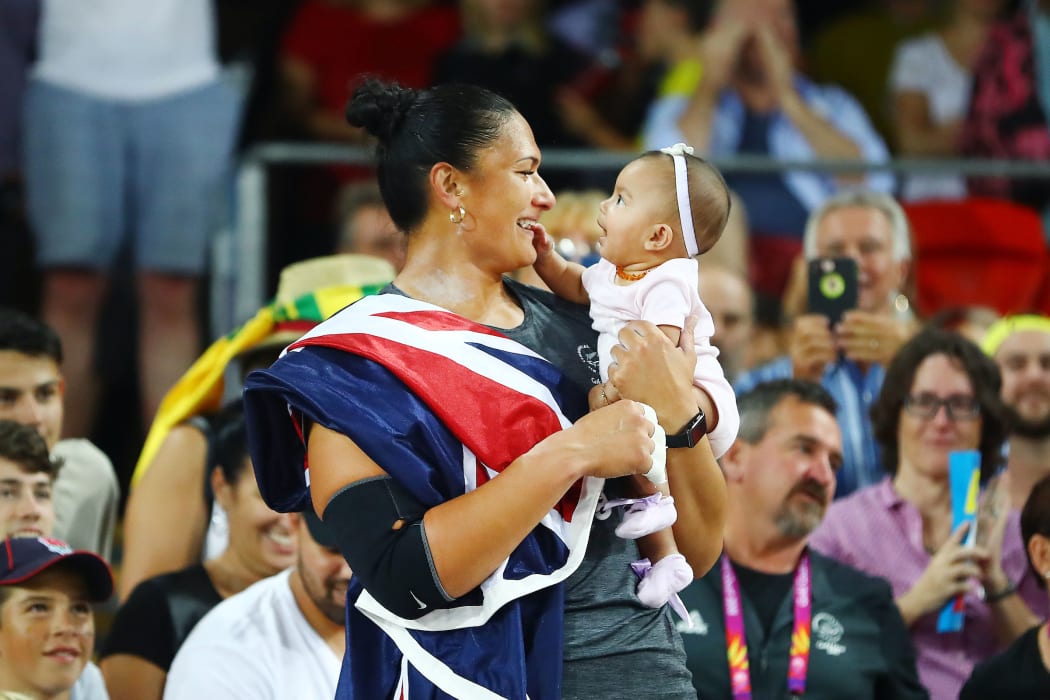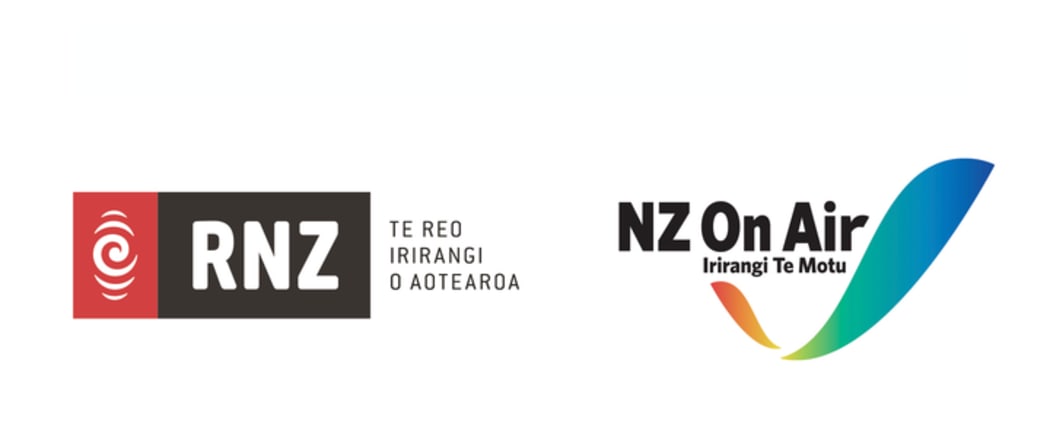
Dame Valerie Adams of New Zealand celebrates with her baby daughter Kimoana Josephine Adams Price Photo: Photosport
Top young female athletes are being urged to make plans for babies as early as their teens, as new research reveals the harsh impact of elite sport on their bodies.
The message comes as New Zealand's leading sportswomen open up about difficulties with their periods, the excruciating pain of endometriosis, and trouble conceiving, in a ground-breaking series by Suzanne McFadden on Newsroom's LockerRoom called From Here to Maternity.
The series also delves into new studies into women's bodies that have flipped training and competition on their head; and how the athletes themselves are leading the way by making pregnancy and motherhood part of their regime.
Today McFadden tells The Detail's Sharon Brettkelly why she started investigating the topic that gets little or no attention in the media, on the field or court, or between coaches and athletes.
She says budding professional sportswomen need to be made aware of the effects of high level sport at an early age because their decisions can have lasting effects.
"We're seeing now a lot of teenage girls who are heading off overseas to start professional careers or to play for sports clubs or to go to universities in the States on scholarships and they're not having their periods, and it’s because in a lot of cases it’s low energy availability," says McFadden.
Also known as RED-S syndrome, it means they are not eating enough food for the energy that they are putting out.
"There's a lot of consequences of that. Infertility is one of them, there's also brittle bones, psychological disturbances, cardiovascular problems. It’s becoming more and more prevalent in young women."
McFadden draws on the personal experiences of sportswomen including Dame Valerie Adams, who is sharing her extraordinary story as a warning "for female athletes who, whether they are in a relationship or not, if they want to be a mum go and get some tests done".
Dame Valerie has two children through IVF treatment but only discovered during the process that she had suffered endometriosis for years.
"I couldn't have done a series without her voice in it," says McFadden. "She's the iconic mum athlete, she's the one we all look to...she's a great role model to mum athletes who want to come back."
McFadden tells The Detail women's sport has come a long way since the 1960s when American runner Kathrine Switzer was told by her doctor her uterus would fall out if she tried to run a marathon.
"The word ‘period’ has been taboo in sports teams for decades and now finally with the help of sports physicians, sports physios and the coaches, [they’re] coming to terms with being able to talk about it . Some of them can't talk to the athlete about it but they can talk to the medical people about it and say, 'why didn't she do so well this week, oh that's because she's in this part of her cycle'."
McFadden finds it fascinating that it has taken so long but she applauds coaches who are now willing to think outside what was considered ‘normal’ before for training. Helping progress are the growing number of female coaches at top level.
Stories such as that of Les Elder, the former Black Ferns captain and new mother to an IVF baby, are being picked up by athletes around the world.
Elder lives opposite the park where she trains. She gets the message to go home and feed baby Mihiterena when the light flashes in her house.
"There is no style book, no guide book with this. A lot of athletes are going blindly into having children and returning," McFadden says.
"Les had to make her own rule book as she went along with her pregnancy and then afterwards but now athletes around the world are contacting her and saying how did you do it, can you draw us up a plan of how you did it?"


